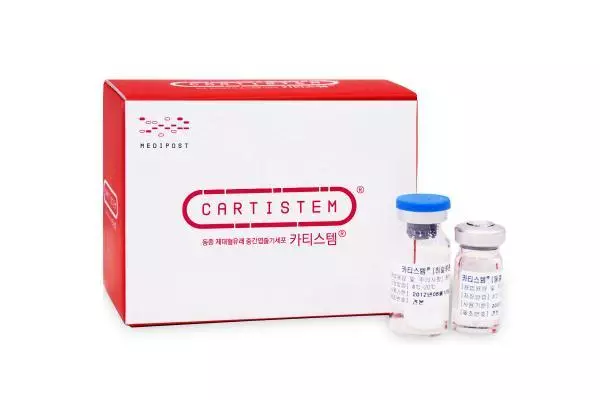· 90 patients with mild to moderate osteoarthritis of the knee received an injection of the drug, one-year follow-up observations will evaluate its safety and efficacy and determine the optimum dosage
· The company aims to expand regenerative medicine opportunities with CARTISTEM® and SMUP-IA-01 for patients with high but unmet medical needs
MEDIPOST announced that it has submitted a request for approval of the phase 2 clinical trial in Korea for SMUP-IA-01, a next-generation injectable drug for knee osteoarthritis, to the Ministry of Food and Drug Safety.
MEDIPOST’s SMUP-IA-01 is receiving attention in the industry as a drug with the potential to become a blockbuster like CARTISTEM®. SMUP-IA-01 is an injectable drug for knee osteoarthritis developed with the company’s next-generation “high-efficiency and low-cost” cell culture platform (SMUP-Cell) technology as well as its 20 years of experience in cell selection, mass cultivation, and long-term storage.
In the phase 1 clinical trial in Korea reported in March, 12 patients with an average age of 69.3 years diagnosed with mild to moderate knee osteoarthritis (K&L Grade 2–3) were divided into 3 different dose groups and given a single injection into their knee joint cavity. Follow-up evaluations were performed for six months to determine the safety and exploratory efficacy, with the results indicating outstanding safety and improved joint function with a reduction in knee pain.
In the phase 2 clinical trial in Korea, 90 patients with mild to moderate knee osteoarthritis (K&L Grade 2–3) will be divided into three groups (low-dose, medium-dose, and placebo groups) and improvement in safety and clinical symptoms will be evaluated with a one-year follow-up period. The optimal dosage for the phase 3 clinical trial will also be determined.
An officer of MEDIPOST said, “In the lesion environment, SMUP-Cell can reduce inflammation by secreting proteins that relieve knee pain and improve joint function through a complex mechanism that suppresses the expression of enzymes that decompose cartilage substrate. It is also expected to improve the structure of the knee joint by delaying structural damage to the joint tissues.”
The officer also said, “CARTISTEM® and SMUP-IA-01 are both knee osteoarthritis treatments and applied in different stages depending on the patient’s symptoms,” and, “In other words, CARTISTEM® is given to patients with moderate to severe symptoms requiring surgery, and SMUP-IA-01 is mainly given to patients with relatively mild to moderate symptoms who do not require surgery. With SMUP-IA-01, we aim to expand regenerative medicine opportunities for patients whose medical needs are unmet.”
MEDIPOST is planning to request a pre-IND meeting with the U.S. FDA in the fourth quarter, based on safety and efficacy data obtained from the clinical trial in Korea. According to the development guide for knee osteoarthritis treatments published by the FDA in 2018, a disease-modifying osteoarthritis drug (DMOAD) is defined as a drug that can significantly inhibit the progression of structural degenerative changes in knee joints and improve clinical symptoms, such as pain and functions. To date, many companies are facing difficulties as they struggle to develop a DMOAD, and regenerative medicine, including stem cell therapy, is emerging as a new strategy.





